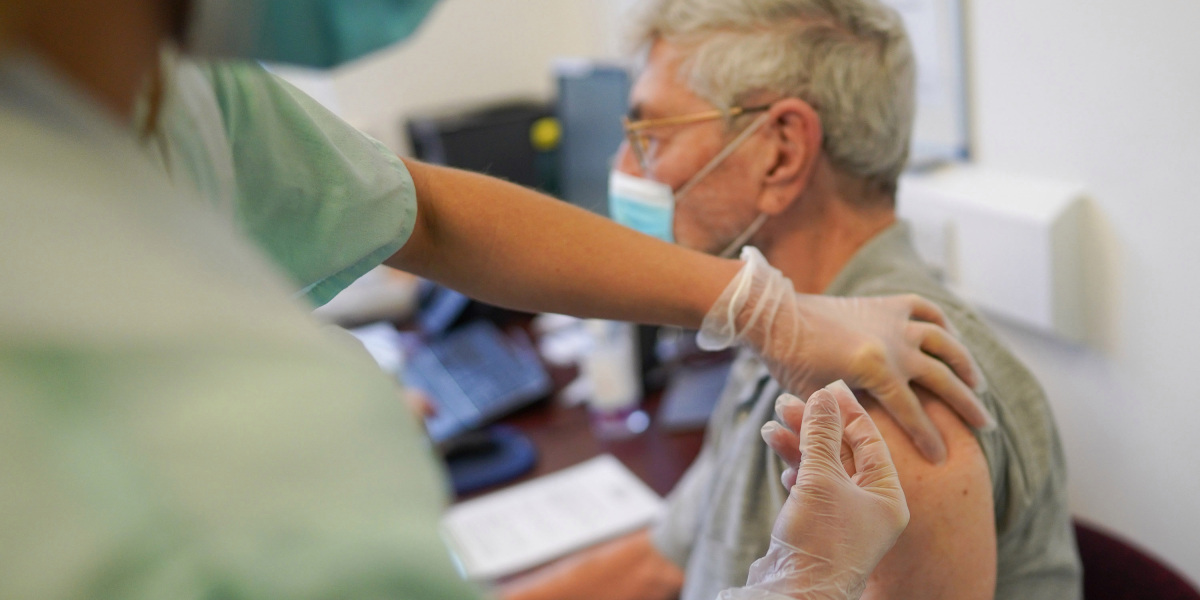
All viruses undergo random mutations to their genetic material. Any change that offers an advantage—like making the virus infect more hosts or resist certain drugs—will tend to be favored so long as it doesn’t also create a disadvantage, such as making the virus replicate more slowly.
Exactly how quickly a given virus mutates can strongly influence how well vaccines work, if at all. Flu viruses rapidly swap genes, which is why we need a new vaccine each year. And there is still no vaccine against HIV, the virus that causes AIDS, in part because HIV mutates extremely fast.
The coronavirus is orders of magnitude less fickle. “There is more viral diversity in a single HIV-infected individual than in the entire population in the world with covid-19,” says Michael Farzan, a biologist at Scripps Research in Jupiter, Florida. “If I found the most divergent versions of SARS-CoV-2 that exist, one from China in 2019 and one from Maine in 2020, they would be less different than what you see in one person with HIV.”
The coronavirus has a comparatively large genome—about 30,000 letters, three times as many as in HIV or the influenza virus—and it changes much less quickly.
What’s more, the spike protein is a pretty large structure, consisting of around 1,270 amino acids. This offers the body’s immune system a broad target; it generates many different antibodies to different parts of the spike. The vaccines from Moderna and Pfizer/BioNTech both trigger this “polyspecific” immune response. A single mutation to the spike, or even a few, isn’t expected to make them significantly less effective. The UK variant, for instance, includes nine mutations to the spike gene, yet is still 99% identical to the version the vaccines can neutralize.
“We know this virus is not stable. No virus is stable. This virus evolves,” said Uğur Şahin, founder and CEO of BioNTech, at a press conference on December 22 in Germany. “But there are many more sites that are not mutated.” Şahin said that over the last month, every time a new mutation has arisen, the company’s laboratory tests have shown that the vaccine should still be effective. BioNTech has checked about 20 so far and plans to run the same tests with the UK variant. That experiment will take two weeks, but Şahin says that “scientifically it’s highly likely” the vaccine still works.
Similarly, Moderna, which began distributing its vaccine in the US this week, said it believed “vaccine-induced immunity would be protective against the variants recently described in the UK.” Eli Lilly, which manufactures an antibody drug for covid-19, said it has already tested it against the main mutation seen in the UK variant, and it still works.
Keeping up with the coronavirus
Nonetheless, some researchers say mutations will eventually make current vaccines and treatments less effective. “It indicates to me that we are going to need to have another version of the vaccine. I am convinced of that,” says Farzan. “We are going to be following these variants like we do the flu.”
If updated vaccines are needed, that could strongly favor the technology behind the vaccines from Moderna and Pfizer/BioNTech, both of which are already authorized in the US. They use genetic data from the coronavirus, in the form of messenger RNA (mRNA), to prime the body’s immune system. The vaccine is essentially a container with the RNA in it, so when any new variant of the virus crops up, matching RNA can simply be substituted.
“Technically it is possible to make a new vaccine mimicking the new strain in a few weeks,” Şahin said at the press conference.
Moderna’s initial vaccine doses, for instance, were manufactured last February, only a month after the coronavirus genome was first disclosed by China.
“That is why people are buying stock in the mRNA companies,” says Farzan. “Those are the guys that are going to have the fastest answer on the second go-around.”
And what about the drugs?
While the companies say vaccines aren’t easily affected by a few mutations, the two antibody drugs authorized in the US so far are less flexible. That’s because while a vaccine causes the immune system to make a large number of different antibodies, the antibody drugs consist of just one or two particularly powerful ones.
Right now, however, the makers of those drugs are also bullish.
Bamlanivimab, the drug being sold by Eli Lilly, is based on an antibody found in one of the first covid-19 patients in the US. The drug is given by injection to people with moderate covid-19 and was authorized in November. Former New Jersey governor Chris Christie got the drug after catching covid-19, while US president Donald Trump received a similar antibody treatment from Regeneron Pharmaceuticals.
Since the Lilly antibody aims at one location on the receptor-binding domain, the hot spot on the spike, any mutation to that region—such as the N501Y mutation seen in the UK—could make the drug less effective. But Ajay Nirula, vice president for immunology at Eli Lilly, wrote in an email that the company’s tests “suggest that bamlanivimab should maintain full activity against the new strain.”
Similarly, Regeneron said it was not worried about the UK variant. Its treatment includes two antibodies, which bind to different parts of the spike protein, making it harder for a chance mutation in the virus to disable the drug.
“Everything we know so far about this variant and our antibodies—including data from preliminary neutralization analyses and against other currently circulating variants—indicate that our cocktail will remain effective against this new strain,” said Alexandra Bowie, a spokesperson for Regeneron.

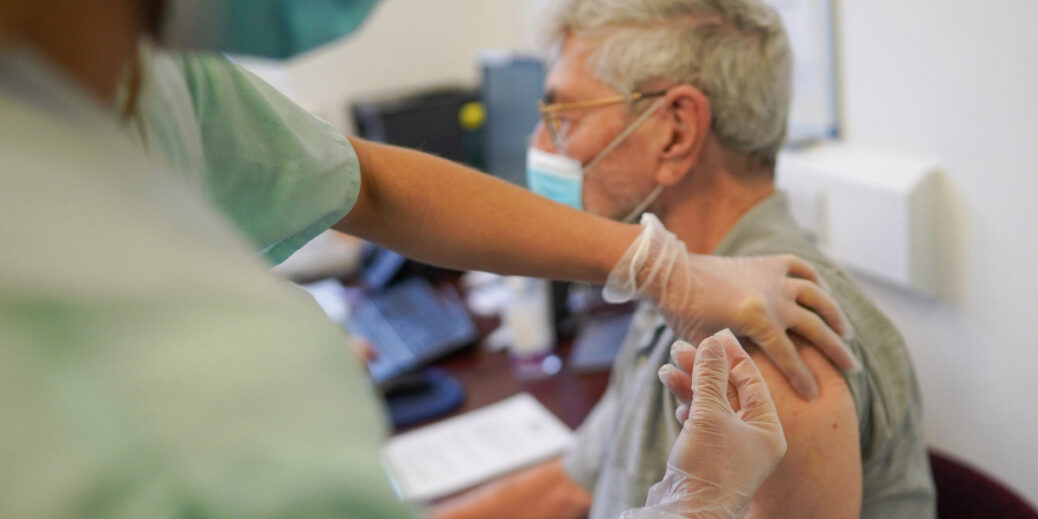
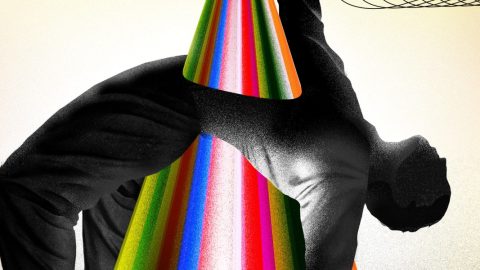
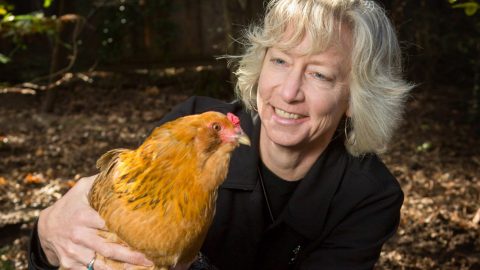
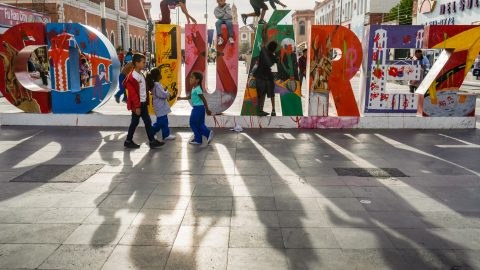
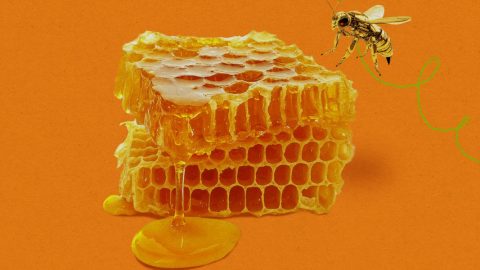
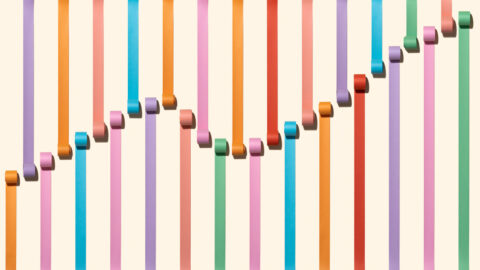

Recent Comments